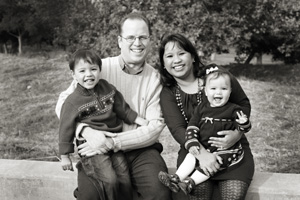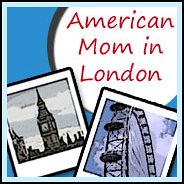This is an article written by Leslie Gilbert-Lurie, author of a new book Bending Toward the Sun: A Mother and Daughter Memoir. Since Thanksgiving is a mere hours away and many of you (though not us) will be spending it with extended family, I thought it made a for fitting and timely post.
At the very least, you could use them as non sequitur to push through those awkward conversations and/or long, stinging silences.
I hope you have a happy Thanksgiving… wherever and with whomever you will be spending it.
*****************
For readers who still have the chance, there may be no greater gift you can give yourself and your children than to know more about your parents’ early years. Sometimes the opportunity to ask questions simply presents itself, perhaps at a family reunion, or in a relaxed setting on vacation. But for many, it will not. I’ve found that since my memoir of my mother and I, Bending Toward The Sun, came out, people have told me that they wish they had asked their parents more questions about their pasts. We often have to pro-actively initiate these probing, more intimate conversations, which are not always in our comfort zones.
However the opportunity arises, what follows are 15 suggestions that will help open up these important discussions among family members.
1. Create a family tree with your mother, father, or both. Ask them to tell you everything they know about your ancestors, including birthplaces and important dates in their lives.
2. Ask your mother or father to describe his or her primary childhood home. Perhaps he or she can go on to tell you about a particularly happy memory of an event that took place there, and a painful memory as well.
3. Ask your parent what books, movies, and music were his or her favorite as a child. You can then move from there to ask about current favorite books or movies.
4. Childhood heroes provide a rich topic of conversation. Ask your parents who their childhood heroes were. Again, you can move from childhood to present day and explore whom they most admire and why.
5. Explore the family vacations your parents took as a child. Ask about where they particularly liked to go, and whether there were any trips they disliked.
6. Try and discover what the rules were in your mother’s or father’s family, and which of these rules, if any, they felt were unfair. Also use this opportunity to learn what responsibilities your parents had as children, and how these contributed to the people your parents evolved into.
7. Inquire about the things your parents wanted to do as children but could not because your grandparents wouldn’t allow them to, they were unaffordable, or your parents did not possess the talent or skills to do them.
8. Ask your parents what questions they wish they had asked their own parents but never did.
9. It is not always easy to ask parents about their own fears, but it provides a good opportunity for mutual understanding. Ask your mother or father what he or she was afraid of as a child and about what he or she fears most today.
10. Ask your father or mother to describe a crush he or she had, or a special teenage romance.
11. Explore how your parents perceived themselves as children. Ask them how they thought adults and peers viewed them, and which aspects of these perceptions were accurate or inaccurate.
12. Ask your parents what first attracted them to each other, and what they most respect or respected in the other. If they are no longer married to one another, see if they will discuss what drove them apart and why.
13. Probe into the highs and lows of your parents’ lives. Ask about their proudest accomplishments and greatest disappointments. If they had one thing to do over in life up to this point, what would it be and why?
14. While they are reflecting, ask your mother or father what they would most want to be famous for, if they were destined to be famous for something.
15. Don’t miss the opportunity to explore how your parents view you. Ask your parents what about you reminds them of themselves at the same age. Ask what they are proudest of in you. And, if you are feeling particularly comfortable by that point in the conversation, ask if they have any questions to for you.
Most people have neither the time nor the desire to spend a decade writing a memoir about a parent or close family member, as my mother and I had the opportunity to do. But even a couple hours spent exploring the past with a parent could provide new and deeper appreciation and understanding. Moreover, a few pages of heart-felt answers could be very satisfying and useful to future generations.
©2010 Leslie Gilbert-Lurie, author of Bending Toward the Sun: A Mother and Daughter Memoir

 Follow
Follow

























I love this. My sister has been doing a ton of geneology research and is actually writing a fiction novel loosely based on the facts of our family. Personally, I loved hearing my dad talk about his childhood and his mom and all the funny stories.
Thanks for the great advice and have a great holiday!!
Best,
Charlene
When I was in high school, I did an interview with my great grandmother. Somewhere, there is an audio tape of that conversation…. What a treasure to get a glimpse into her life as a young child. I was happy to see that I am close enough with my family to know the answers to most of those questions. Now the hard part will be getting my hubby’s family to open up a bit…
You are sooo right on your post! Good job. I would like to add: cherish your parents/grandparents as much as you can NOW. In my family and my hubby’s family, there is only my mom left. Pretty sad. Grandparents are precious commodities. Love em while you got ’em!